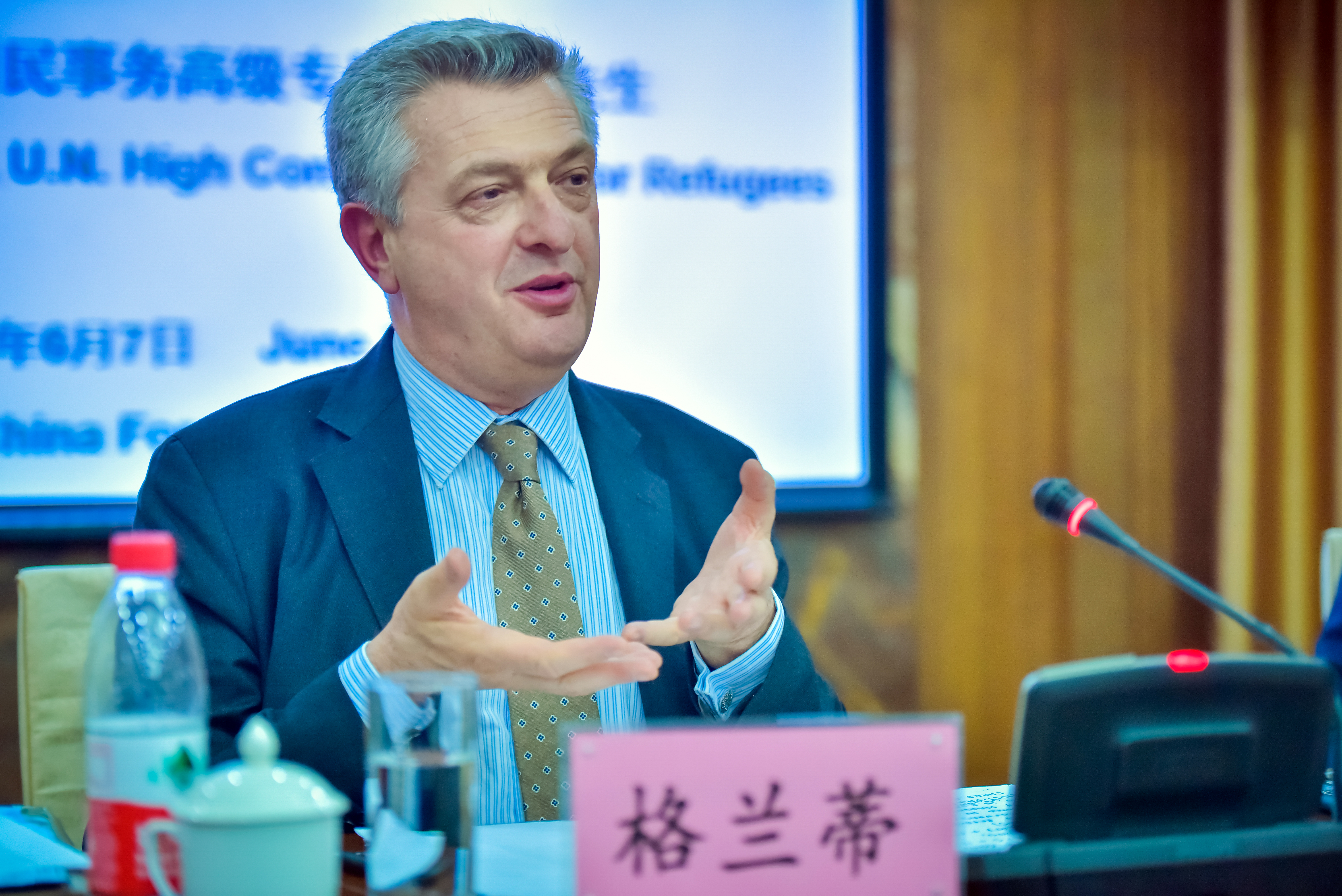Vietnamese refugees well settled in China, await citizenship
Vietnamese refugees well settled in China, await citizenship

GUANGXI ZHUANG AUTONOMOUS REGION, China, May 10 (UNHCR) - Even though he has spent three-quarters of his life outside Viet Nam, where he was born, Chen Youliang feels completely at home in his adopted country, China.
His daughter, now 11, the same age Chen was when he fled fighting between China and Viet Nam almost three decades ago, says firmly: "We are Chinese." All she knows about Viet Nam is what she's heard from her grandparents.
Chen and his family live on state-run Liangqi Farm in south-west China's Guangxi Zhuang Autonomous Region, which borders Viet Nam. They are among the 260,000 ethnic Chinese refugees - mostly farmers, fisherfolk and artisans - who fled Viet Nam during the brief 1979 border war that followed Viet Nam's invasion of Cambodia. Their number has now grown to at least 300,000 in China.
At home in Viet Nam, Chen recalls, "the local Vietnamese people showed us footage of the war in Cambodia to scare us - and we were scared. We came to China, empty-handed."
In a sense, the so-called Indo-Chinese refugees in China are a success story. Alone among Asian countries, China has allowed refugees to settle down and integrate into society, even though it was still a poor country when they arrived.
Their experience has been "one of the most successful integration programmes in the world," UN High Commissioner for Refugees António Guterres said on a visit to China in March 2006.
But the success is not yet complete. The Indo-Chinese - 98 percent of the refugees who fled to China between 1979 and 1982 were ethnic Chinese - do not have Chinese citizenship, although they enjoy most of the privileges that Chinese nationals do. In some cases, local authorities have even issued Chinese passports, though without consent from the national level.
"The challenge now is to get these refugees naturalized, since they have spent more than 25 years in this country," said Verrapong Vongvarotai, UNHCR's Beijing-based regional representative.
China insists that Viet Nam accept the return of any refugees who want to go, while the Hanoi government has washed its hands of the refugees. "Negotiations between the two governments have not been successful," Veerapong said.
Many of the refugees have built prosperous lives here. Chen is chairman of the Refugee Association on Liangqi Farm in Guangxi, home to the largest ex-Vietnamese population in China. Chen says his fellow refugees have done well on the sugar cane farm: "The average income here is higher than in [the capital of Guangxi] Nanning," he says proudly.
Zhao, who said he was expelled from Viet Nam during a period of official discrimination leading up to the 1979 war, has travelled a different path to prosperity, even as China itself was roaring ahead economically.
Taking advantage of Chinese government permission to leave the countryside for the city of Guilin, Zhao began running a small hotel and a separate grocery store that caters to the needs of guests of the ritzy Sheraton Hotel. He now dreams of selling off his assets and retiring to Canada, where he has many relatives.

Other refugees have benefited from a low-interest loan scheme introduced by UNHCR in 1994 to encourage big farms to hire refugees. As a mark of its success, the UN refugee agency is now in the process of turning the US$7.8 million fund over to the Chinese government, which would then collect the loans that are due. No new projects have been started since 2003 because the refugees have reached a living standard equal to that of Chinese nationals.
For Chen, Zhao and so many others, the last issue to be resolved is their citizenship. "China is drafting national refugee legislation in consultation with UNHCR, and we hope a national refugee law will enable the Indo-Chinese refugees to finally make China officially their home," said Veerapong.
By Song Jing in Guangxi Zhang Autonomous Region, China









